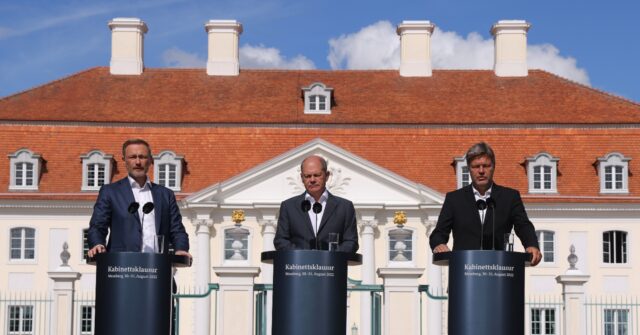The recent collapse of the leftist-led coalition government in Germany, spearheaded by Chancellor Olaf Scholz, was brought about by a series of unresolved budget disagreements, personal conflicts, and external political dynamics, particularly the return of Donald Trump. The coalition, consisting of Scholz’s Social Democrats, Christian Lindner’s Free Democrats, and Robert Habeck’s Greens, had been in power for nearly three years following the significant political landscape shifts that resulted from former Chancellor Angela Merkel’s retirement and her party’s declining support. Tensions within the so-called “Traffic Light Coalition” had been simmering for months, culminating in the dismissal of Finance Minister Lindner and the exit of the Free Democrats from the government.
At the core of this political breakdown were contrasting ideologies regarding the role of the state and differing visions for Germany’s economic future. Scholz’s accusations against Lindner point to deep-seated fractures in the coalition, with trust eroding as they engaged in a public and unflattering exchange of criticisms. The chancellor emphasized the necessity for responsible governance, stating that Lindner’s “egotistical” behavior made continued cooperation untenable. This breakdown represents not just a political failure but also a significant divergence in priorities among party leaders, highlighting varying approaches to budgetary discipline and governance strategies.
Scholz also illuminated the role of external political changes in this domestic crisis, specifically mentioning the election of Donald Trump, which added pressure on the government to establish a cohesive economic stance. Concerns heightened over Germany’s reliance on Russian gas and NATO obligations, as Trump’s past pressures for increased defense spending came back into focus. Although Vice-Chancellor Habeck tried to salvage the coalition, the underlying unpopularity of the government and particular policy stances made it difficult to maintain unity. His acknowledgment of the unfavorable public perception reflects a broader sentiment about the coalition’s effectiveness amidst ongoing international crises.
The fundamental economic disagreements within the coalition were exemplified by the contrast between the Free Democrats’ pro-business agenda and the Greens’ environmental focus. Lindner’s push for corporate tax cuts and reduced government expenditure clashed with the Greens’ refusal to support such measures, while the Social Democrats were not amenable to substantial spending cuts either. The complexity of navigating these divergent positions became pronounced as the German economy continued to face challenges, with slow recovery from the pandemic and repercussions from the ongoing war in Ukraine straining fiscal policies.
Further complicating the situation, Lindner revealed demands from Scholz to suspend Germany’s constitutional “debt brake,” which imposes limitations on annual debt increases. His refusal to comply underscored a fundamental ideological divide regarding fiscal responsibility and governmental growth strategies. Lindner’s call for a reorientation towards sustainable growth signaled a desire for a more prudent and forward-looking fiscal approach, contrasting sharply with the current coalition’s envisioned strategies, which he deemed impractical.
Despite the collapse, Scholz’s Social Democrats and the Greens are expected to maintain a minority position in the government temporarily. The timetable for a confidence vote in the Bundestag is set for mid-January, shortly followed by elections that are anticipated by March. Political opponents, like Friedrich Merz of the Christian Democrats and left-wing populist Sahra Wagenknecht, criticized the delay, arguing it undermines the country’s governance and reflects a lack of accountability on Scholz’s part. As calls for immediate electoral action grow, the unfolding political landscape looks to redefine Germany’s governance in light of recent events. This potential restructuring not only presents an opportunity for new leadership but also poses questions about the viability of previous alliances and policy directions.

